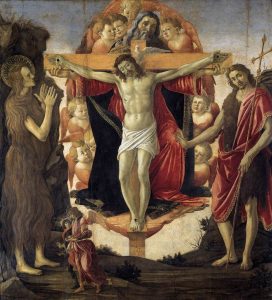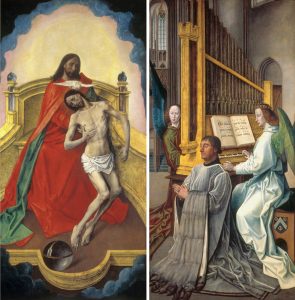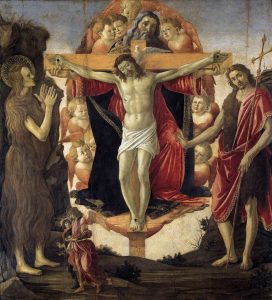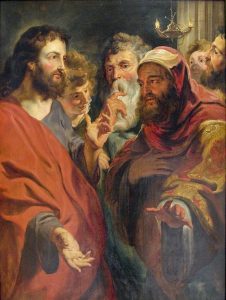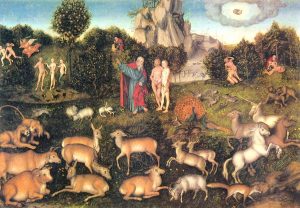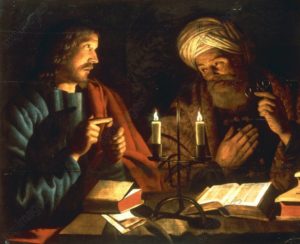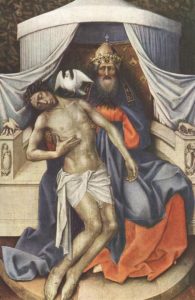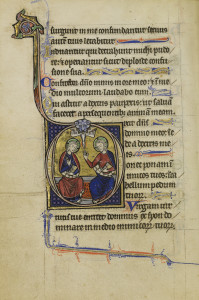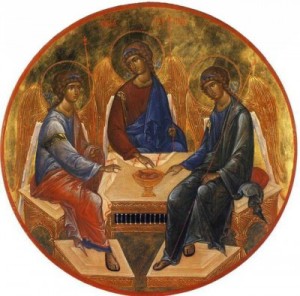Illuminations on the Lectionary readings for June 15, 2025 (Trinity Sunday C)

L’Adoration de la Sainte Trinité (Adoration of the Holy Trinity, c.1640), oil painting on canvas by Johann Heinrich Schönfeld (1609-1684). The Louvre, Paris. (Click image to enlarge.)
First Reading: Proverbs 8:1-4, 22-31
On the Sunday after we celebrate the coming of the Holy Spirit on Pentecost, we celebrate Trinity Sunday. On this day we remember the theology that developed as the early church sought to understand how Creator, Son, and Holy Spirit can come together as three persons within a single God. Our first reading from Proverbs offers a poetic description of God’s divine wisdom personified as female: God called Wisdom, a powerful, creative woman, to be present at the moment of creation. She cries out joy in the newly made world, delighting in humanity.
Psalm: Psalm 8
The 150 ancient hymns in the book of Psalms serve many purposes, from expressions of sadness and lamentation to prayers for help to songs of praise and joy. Psalm 8 is all about praise: We lift our voices in joyful appreciation to the God who created this beautiful world and everything that lives on it. God gave us mastery over all creation, the Psalmist sings; God’s people are called to be responsible for God’s creation, not only to take pleasure in it.
Alternate Psalm: Canticle 13
In place of a Psalm, we may sing Canticle 13 from the Book of Common Prayer, “A Song of Praise.” This litany of praise and exaltation to God as Creator and King recalls the story of the three young men who danced and sang in defiance of the flames in King Nebuchadnezzar’s fiery furnace. Protected by God, as told in the Book of Daniel and the apocryphal Song of Azariah, they walked unharmed through the fire, singing a hymn of praise to God and all creation. Their full song is recorded as Canticle 12. Canticle 13, a modern supplement to the young men’s song, rings out resounding praise to the Trinity, Father, Son, and Holy Spirit.
Second Reading: Romans 5:1-5
In this short passage from his Letter to the Romans, Paul calls for thoughtful understanding: It is important for us to understand that Paul is not saying that suffering is good. Nor is he warning that God requires us to suffer. Paul is offering specific advice to an early Christian community in Rome, a mixed group of Jewish Christians and pagan converts, some of whom have known persecution and exile. Paul points out that Christians rejoice in God’s grace in spite of suffering, not because of suffering. Moreover, he says, God’s love through Jesus, poured into us through the Holy Spirit, gives us the strength to stand up to suffering.
Gospel: John 16:12-15
On Trinity Sunday, we hear one of the shortest Sunday Gospel readings in the Lectionary. In spite of its brevity, it is a powerful reading, one last offering in the series of excerpts from Jesus’s talk with the disciples at the Last Supper that we have heard in recent weeks. There are things about God that we just can’t understand, Jesus tells his friends. But then he assures them that the Holy Spirit will be with them, as the Holy Spirit is with us: bearing the glory of Creator and Son, and guiding us all toward the truth.

